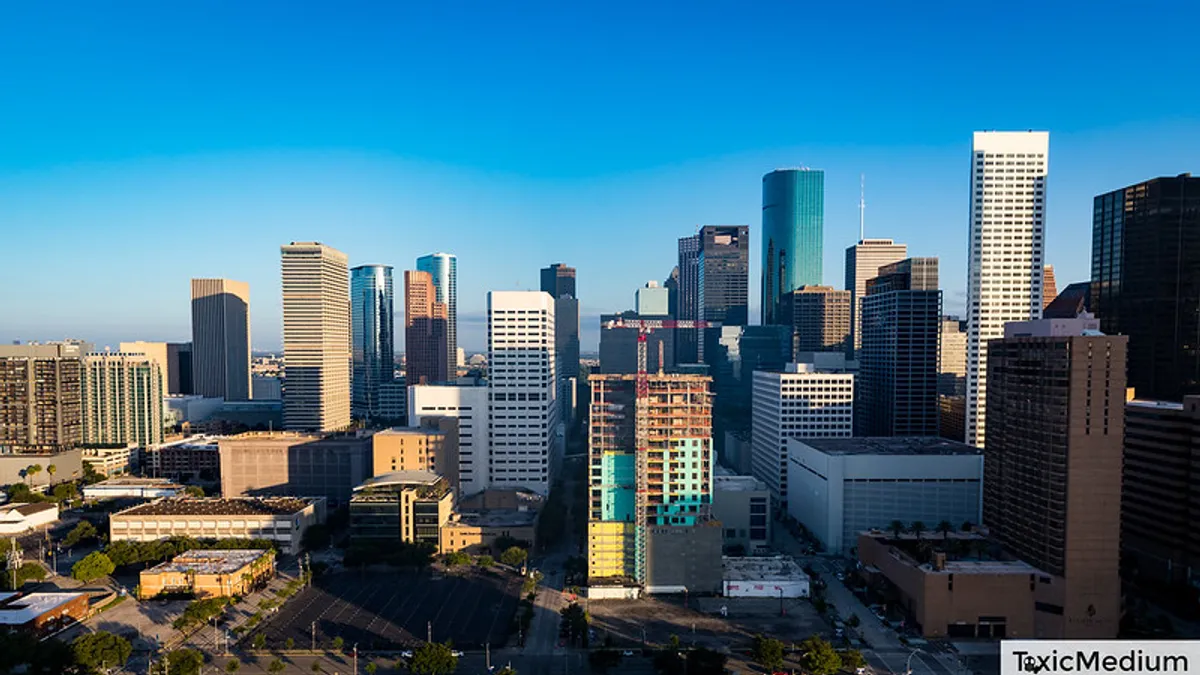Dive Brief:
- Responding to activists’ complaints and citing “environmental justice concerns,” the Federal Highway Administration has asked the Texas Department of Transportation to pause its $7.5 billion plan to widen Interstate 45 through Houston, including refraining from issuing any new requests for proposals, until it can determine if the project violates the Civil Rights Act.
- In a March 8 letter to TxDOT posted on Twitter, FHWA Texas division administrator Achille Alonzi acknowledged that the recent completion of an environmental review had cleared the way for Texas to move forward with the job, known as the North Houston Highway Improvement Project. But Alonzi asked the agency to refrain from doing so until FHWA can evaluate the civil rights concerns raised in three letters from Congresswoman Sheila Jackson Lee, the Air Alliance Houston and Houston community organization Houston Housers.
- FHWA retains responsibility for evaluating and processing complaints against federal-aid recipients under Title VI of the Civil Rights Act, Alonzi wrote. “To allow FHWA time to evaluate the serious Title VI concerns raised in the letters referred to above, we request that TxDOT pause before initiating further contract solicitation efforts for the project.”
Dive Insight:
FHWA’s letter came after the environmental review that cleared the way for the I-45 project to move forward found that widening the roadway would necessitate the removal of more than 1,300 homes, businesses, schools and places of worship, with much of the impact coming in low-income Black and Latinx neighborhoods.
The move marks a first test of President Joe Biden’s pledge to ensure environmental justice in federally funded infrastructure projects, and has inspired activists in at least three other states to ask Pete Buttigieg, Biden’s transportation secretary, to stop or modify highway projects in their states, according to Bloomberg. Community organizations in Oregon, Wisconsin and Boston are now lobbying Buttigieg to stop or alter proposed projects on Interstate 5, Interstate 94 and the Allston Multimodal Project, respectively.
Last week, Biden introduced his $2 trillion American Jobs Plan, focused on rebuilding America’s aging infrastructure. In it, he carved out $20 billion to “redress historic inequities and build the future of transportation infrastructure.” Title VI of the Civil Rights Act states “No person in the United States shall, on the ground of race, color or national origin, be excluded from participation in, be denied the benefits of or be subjected to discrimination under any program or activity receiving federal financial assistance.”
While America’s interstate highway system is viewed as one of the world’s greatest infrastructure and engineering feats, it also has a reputation for blighting inner-city neighborhoods, where homes are sometimes razed to make room for noisy and polluting elevated roadways.
The FWHA’s move is being viewed by transportation officials as a potential watershed moment to redress that legacy, and one that could set precedent and the tone for the Biden administration going forward.
“This is a big deal,” Fred Wagner, an attorney who served as general counsel at FHWA during the Obama administration, told Politico. "It just doesn’t happen very often."















